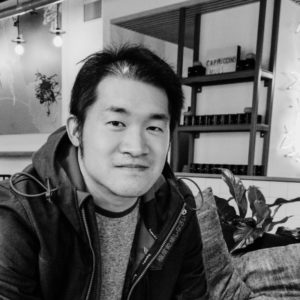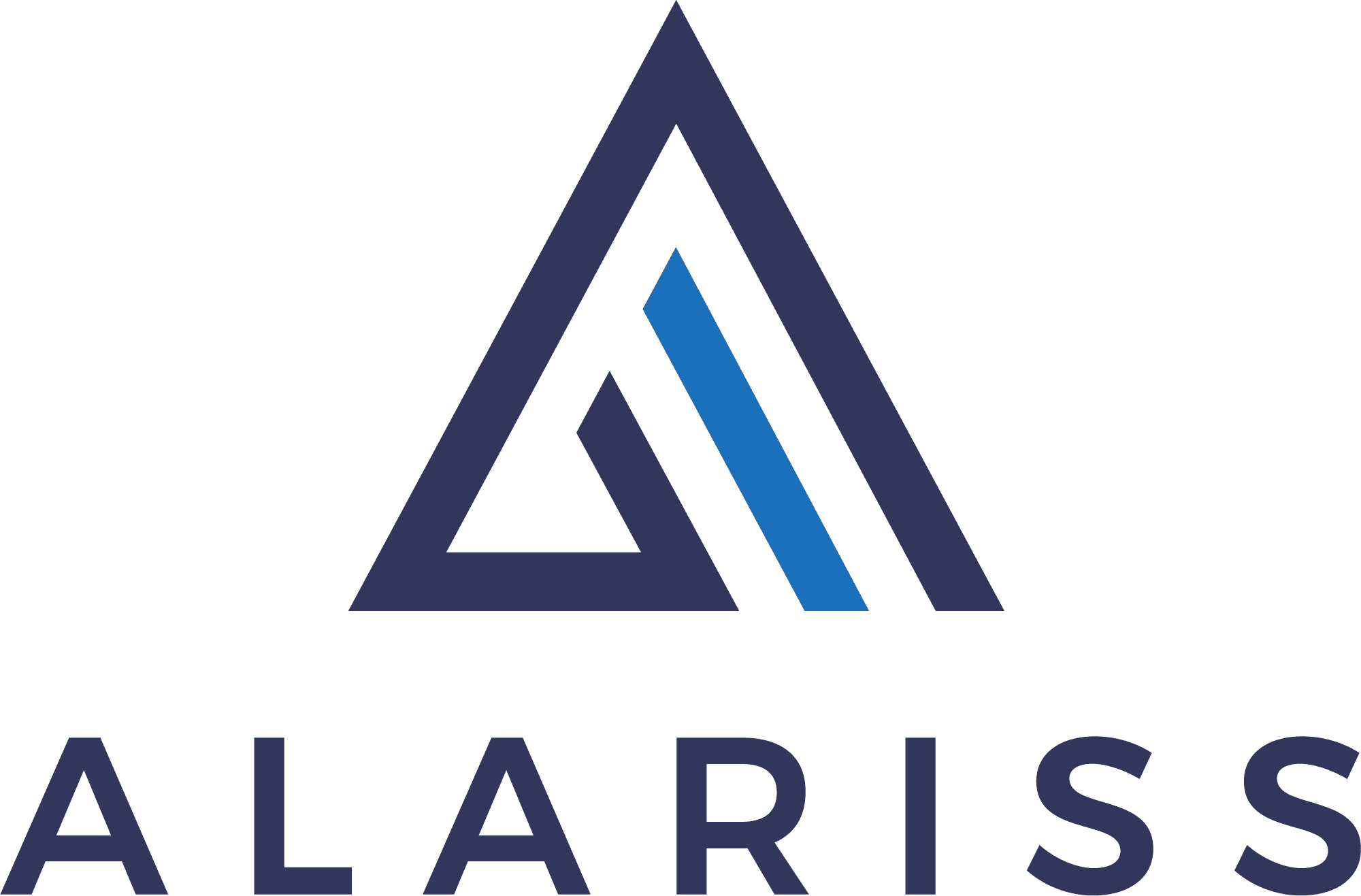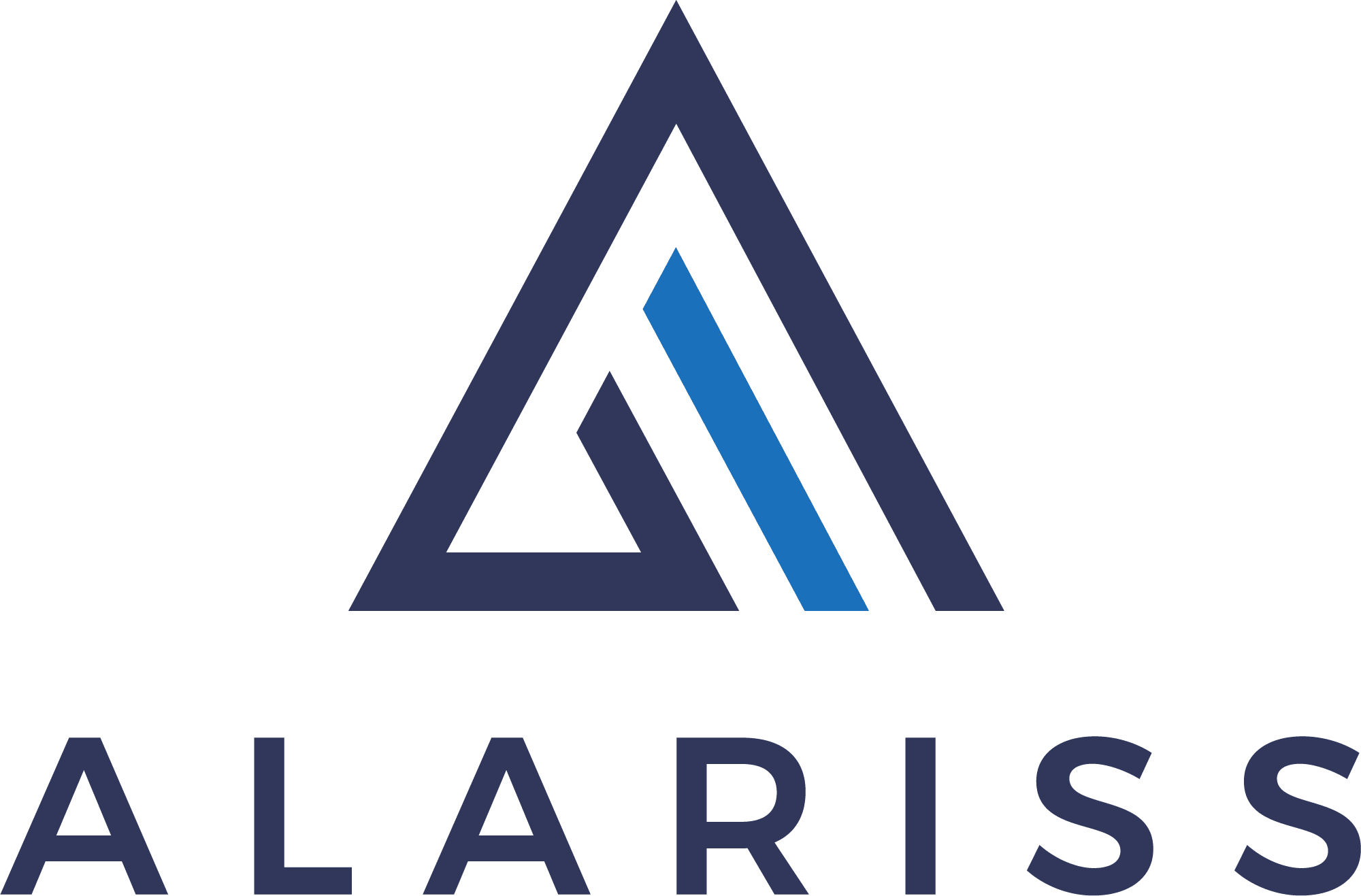Blog
How a UX Designer Views This World

April 29, 2022
On the eighth episode of “Alariss Classroom,” Allen Chan is the founder of Mayo, a phone application on a mission to bring the world closer together, in-person. Allan Chen used to work for lots of top companies, such as CyberLink, Microsoft, Wavii, Xbox, and Amazon. After more than 15 years of working experience, he decided to develop Mayo with his team. And let’s hear his special stories.
Camilla Guo: Hey there, thanks for listening to Alariss Classroom. This is Camilla with our guest Allen Chan, who is the founder of Mayo, a phone application on a mission to bring the world closer together, in-person. Allen Chan used to work for lots of top companies such as CyberLink, Microsoft, Wavii, Xbox, and Amazon. After more than 15 years of working experience, he decided to develop Mayo with his team. And today, let’s hear his special story. Hi, Allen.
Allen Chan: Hi, everyone. Hi, thanks for having me.
Great. Before we start today’s podcast, could you give all of our audience a quick introduction of yourself?
Yeah, so I’m the founder of Mayo currently. In the last 16 years, I’ve been working on design, different aspects of design, ranging from visual to brand identity to marketing, 3D animations, mostly user experience though, so UX covers a wide range of everything, from prototyping to research to wide framing visual designs, whatnot. Yeah, so that’s what I’ve been doing for most of my career, most of my life, all along having freelancing as well most of the time while I have a full-time job. So that means I’m just nonstop working.
Yeah, definitely. When I look into your LinkedIn profile, I saw the last place you worked was for Amazon. There’s so many people that are willing to jump into Amazon, they want to work for Amazon. What made you decide to leave Amazon and work with your own team?
I think I’m just at a point in my career where, well one, I think I was a bit over corporations because with corporations of course it’s big conversations, you have a lot of resources, you have great teams, smart people. But there’s also a lot of things that comes with corporations, right? The annual reviews, the processes, the products you have to work on, and the impact you feel like you may be having sometimes. I hit a point where the people I loved all started leaving. It’s pretty typical, tech life cycle where every couple years people want to switch teams, people want to leave their jobs and get a new one. So my whole team just happened to be fizzing out at the same time. So I just decided, well, if I’m ever going to try something new, I might as well try it now, right? Give it a shot that way I’m not left wondering, what if? What if? Right? So I just decided to go and do it. So there’s never going to be a perfect timing or best day to do this, so yeah, I just decided to take the leap as my team was about to leave.
Yeah, definitely. I really admire the attitude. It’s like when you’re thinking about something, you try to at least do it. You just try it out. If you don’t try, how are you going to know if it’s going to work out or not? Personally, I’m using my whole 25 years to examine that I have so many different weird or unique thoughts all the time and trying to let everything happen. You know like some things, they work well, some they are not. And when the things don’t work well, maybe just learn a lesson and don’t do it anymore or giving advice to other people like, “Don’t do that, it’s not something that’s going to work out.” So actually, I’m also a Mayo user. Even I have this app, but I never really like post in the help or provide the help to the people, I’m more just like browsing and looking into it. But I want to know more, you said your mission is bringing the world closer together, in-person. Why you want to start this app and what is more about this app?
Right. So I think some of it definitely comes, I think culturally, right? Like being Asian as well I think we, more or less, feel it more than any other people. So I grew up in Vancouver, Canada, which is great. It was a lot of Asians there as well, Chinese, people from Hong Kong, Taiwan, Vietnamese, and whatnot. But after I graduated, I went back to Taiwan to work for about five years. During that time, I also made a lot of business trips to Japan as well, right? Because the company had a second headquarters there. I loved the environment, it’s great. But also in Asia, I guess for example, if you’re in US or in Canada, you say to people on the street, “Hey, nice shirt.” Most people will say, “Thank you,” and you kind of move on, that’s it. But if you say the same thing to people in Asia, their first response is to look at you and step back and be like, “Why? Why did you say nice shirt? What do you want from me?” Right? They come from a more skeptical, concerning point of angle right away, right?
So there’s been a lot of times in Taiwan or Japan where I felt like, hey, definitely people can be super friendly, but they need the right context or the right circumstances. They need some kind of trigger for them to be super friendly. Otherwise, I guess culturally, Asians were taught to be more careful, doubt everything, and protect yourself. At least, that’s how I grew up. So I wanted to figure out ways to get people over that barrier or that sort of notion of doubting everything at first. Not everyone’s out there to get you, not everyone’s out there to take advantage of you. And especially, I went through a time where the iPhone started to come out, there was a lot of different technology emerging as well. I saw a trend where people were getting stuck to their screens more and more and I don’t see that going anywhere soon. There’s going to be more screens and then on top of more screens, now we’ve all got headphones, Airpods, whatnot. So your personal bubble is getting thicker and thicker. It’s hard to even tap on someone’s shoulders and say, “Hey. Can you watch my stuff while I go to the washroom?” In Starbucks, just impossible. You can look at them, they look like they’re busy even though they’re probably just on Instagram, but you just say, well screw it, I don’t want to make them take off their earphones and say, “Huh?” So you just go about and do your own thing.
So I wanted to figure out ways to essentially bring people closer together in that sense. It doesn’t mean you need to be friends with everyone, but I do believe in a world where you should feel free or feel like it’s okay to talk to people or ask for help, or just have a conversation while you’re waiting for your friend to come meet you at Starbucks. But today, when you’re waiting for your friend, everyone’s looking at their phones, so you just, you don’t want to sit there like a boring person, so you pull out your phone and you pretend you’re doing stuff. So many times I’ve seen people just swipe on their home screens left and right and not doing anything else. If you don’t have anything to do then don’t pull out your phone, put it away. But it’s just I guess the way society functions; you don’t want to feel like you’re sitting there doing nothing. So I played with a few ideas to kind of see, hey, how can I create these moments for people that would actually bring them together in a non-dating way. Because dating is dating, whether it’s professional dating or Tinder dating, it’s still dating, but I wanted to bring people together without knowing profiles or without initially knowing who you are first. It shouldn’t be about that. There’s definitely a need for that, but I’m not here to build something like that.
Yeah, I definitely agree and especially when I see the app is like a post for help or provide help. I think, as my personality, moving to the States when I was 18 years old by myself, during that time you’re here alone, so there’s some people around you that will provide that help. And later on when you’ve grown up, you become more mature, you’re willing to provide the help back to the society, wanting to help other people. So I definitely think that’s something that I kind of feel like now we’re missing a lot because people are trying to stay in their own small space and like, “Don’t bother me and I’m not going to bother you as well.” Especially like in this middle of the pandemic, even I’m saying the help doesn’t need to be something like in real life. Just like check in with each other, that’s a help as well. Like, “Hey. How you doing? You have to know that I do care about you. I just want to check in with you.”
Do a retro happy hour or something like that.
Yeah, definitely. As you mentioned, you’ve been working for lots of big companies, even like corporate office. Was there an office culture that you really like or you enjoy and now you’re willing to bring it to your company?
Yeah, so I’ve definitely been through quite a few different teams as well. But I will say definitely, at least from my experience, people and I myself really value transparency. And transparency not as in like just being honest or talking people up, feedback, whatnot, but as also transparency I think from the top down. It helps a lot if you understand why your boss or why your manager is making certain decisions and where that is coming from. Because I’ve seen a lot of times where your managers will walk in and say, oh, we’re doing this tomorrow, or the product is changing to this. And a lot of people are just left wondering why. Some people question this but just say, okay, whatever you said it so I’m just going to change the direction.
But it helps if the manager goes one step further and tells you, oh, we’re doing this because we had a VP meeting, VP said this, the business is in trouble because of this and this is why it trickles down to you making a product shift. I think that helps people understand what is happening and it does feel like they’re involved in the decision-making processes even though they had no way to change it. But at least, I know why I’m doing this. I feel like that–at least that’s a key point that I really want to bring to my company as well to make sure that people always know what’s going on. Even though the company is not doing well, even though you’re not getting growth, even though you…we’re having troubles getting this option. But at least I want to let people know, one, your work is not for nothing, and if I’m having difficulties, then this is why I’m having difficulties. And partially also you never know, maybe the team can help or they have good ideas. So I don’t want them to just say, hey, you’re always executing A, and B, and C. I would love for you to have your input, you can have a different perspective on things. We can’t all be cooks in the kitchen, but I believe it helps for you to understand how food is made or what sort of ingredients we’re working with. So I think, for me, that would be one of the key points that I want to bring to the company for sure.
Yeah, definitely. I definitely agree with you. I like when even my professor or my team leader letting me know the whole processing. At least everybody on the same page all the time instead of like suddenly you bring news into the team and they say, what? How come I don’t know like previous story? That’s the reason why, when I’m doing a meeting, I always like the typical all version. Like, “Previously…” And then we’re talking about what happened previously, like we had this discussion and what’s the result. It’s happening sometime people cannot show up for a meeting or they have some consequence so helping them to recap, it’s not a big deal I guess and also I think it’s a way to unite the whole group together to build up a strong connection I really think.
To get more involved so your work is not just a checklist of to-dos constantly. That’s it, yeah. No one likes that.
Yeah, and also sometimes you never know, people really want to jump in the front of different divisions. I’ve been working with outreach for a long time, but my major is actually in marketing. So I’ve been exposing my idea like, oh I want to work in marketing. I want to try because I’ve been learning that thing for four years, but you never tried it out. You never know if it’s really going to work from what I learned from the textbook to the reality life. Like I want to know. It’s good that to let your employee to know about from the start to the end, especially it is really important to let everybody to stay on the same page. I definitely like that idea. As that brought me back to your LinkedIn profile, you wrote this quotation. I’m just going to quote here, “Design the world into the better place.” Could you just give me more introduction or definition of what you think, what is a better place?
I think the origin of that quote was probably a long time ago where everyone writes something on their LinkedIn and I was just thinking, what would I want to put? So I think I just came up with something simple where I’m like, well, I’m in design, so maybe I should obviously put something related to design in there. And then I guess I just think about, why am I really designing things? I definitely appreciate pretty things or visually appealing things, but it’s not my job to design the world into a prettier place. I think that’s too superficial. But then I think just you kind of go through different verbs. Is it more efficient? Is it more helpful? Is it more kind? There’s just so many different things that I could put in there, so I think eventually I just went with a more broad term like better place. Because I believe a design should always improve things. Designs should not be there because we need a change, just because we need a change, or because I’m just getting paid or because I feel like doing some work. So if design is not there to improve something, then I think it’s a waste of time. Any sort of improvement, any sort of empowering or bettering things, then that should be the goal of design. However small, however tiny increment that may be. But you should progressively be pushing the world or whatever your design for the product that you’re working on to be a constantly better state. There’s always improvements that you can make.
Yeah, definitely. I love to see all different kinds of design and I definitely see some of designs like you see is quite unique but it’s not that functional and not that helpful for helping your life become easier. But it’s more like, it is a design. That’s it. It’s not really making a big deal, but I definitely agree with what you mean like helping things come to a good direction, to the better place as you mentioned.
And actually one more thing I want to touch on too, because also I didn’t want to say something like, “Designing better products,” because I think products and you’re locking yourself into certain types of products. I mean essentially, anyone could be a designer. Everyone has good ideas on how to improve things. So I said, hey it could be the world because even working out of a company on a product, you could be thinking about improving the process or improving how you bring the team closer together, how do you do team building. That’s how we’re designing the world to a better place not necessarily just to a job function or the product itself that you’re working on. That’s all.
Yeah, even now that we’re designing our own lifestyle, living in the same house 24/7 and trying to adjust yourself, that’s also one of the design as well. I am curious about when you mentioned about you were born and raised in Vancouver and later on you moved back to Taiwan to work. What led you to move and work in Taiwan after you lived in Canada for so long?
I think just a combination of a lot of things. One, growing up in Vancouver, it’s great, there’s a lot of Asian food, Asian culture there. But I guess consensus with me and my friends, it’s a little bit boring, it’s very slow, it’s very laid back. After like 16 years you’re just like, well, I want a change. And it’s partially I think because my parents had gone back to Taiwan, a lot of my friends had also moved back. My family immigrated to Canada when I was eight, so I decided well, it might be very different to live in Taiwan as an adult. So I just decided to find job opportunities there when I visited there and happened to get a job and get an offer so I just decided to say, hey, I’m just going to move back and see how it is. Because I feel like it’s always easier to–well not always easier to but I feel like it’s definitely going to be an option to move back Canada or North America one day if I really need to. But I feel like if I stay here for too long, then it’s going to be harder to make that big change back to Taiwan. So I just decided to jump in first and see how it goes.
Yeah. Also I want to know that when you moved back to Taiwan, did you have any culture shock or? Because previously maybe you didn’t live there for a long time, but suddenly when you’re diving into the new culture even though you’re still born and raised in an Asian family, but it’s still different. I wonder if there’s any culture shock happen.
I think for me, not too bad, because I went to Chinese school, I kept my Chinese, I can read, I can write. There wasn’t much problems at all, and I was pretty up to date with the anime, the manga, whatnot. All the Asian stuff, movies. So I didn’t have as much of a culture shock, but there’s definitely differences when you go back to Taiwan. Like for example, the pedestrian is no longer the king of the road, you have to yield to cars. Not cars yielding to you in North America, right? And then in Asia, for example, I noticed that you always pay first. So when you order meals in restaurants, you pay right away. And that’s something that it took me a while to adjust. The first time I went I was like, where’s my food? Why am I paying before I get my food? But it’s just something very different where you get used to it. I remember going to the night markets in Taiwan where I went up, I was waiting for my turn, and I realized I’ll never get my turn because people just run up and shout what they want. So the owner just keeps making food and if you wait, you’re never going to get your turn because it just doesn’t work that way. So there’s some differences for sure.
I feel you, I definitely feel you. So what happened to me is I didn’t come back home for two years. A year and a half, I went back just for a short visiting for my family. My mom’s mindset, still thinking I’m somebody been living there for so long, so still treating me the same way. Asking me to cross the street without looking at the traffic light, without pedestrians, and I walked. I literally stood up there and was like, what am I going to do? Like there’s cars coming all over, where should I cross? It was just so scary. And also when I do the food ordering, like I’ve been waiting, ugh, this person came in behind me, I should be the first one putting my order? Why he’s directly yelling out the order and everyone’s just ignoring me? This is not fair. I think that’s definitely from small things changing a lot, but definitely that’s the culture to people like us. Street food culture, that’s what it is. You can see where the food passion comes from.
Right, yeah. Just definitely very, very interesting.
Yeah. So I do also want to know because I know you’ve been working quite a long time for the UX designer. Could you share more about where you find your inspiration for your work?
I think, for me personally, just a variety of a lot of different things. I don’t think I necessarily always look for inspirations. I think, I mean it helps if you of course are up to date with recent apps, if you’re on Pinterest, if you’re on these design blogs and whatnot. But for me, I think I personally am just curious about a lot of different things. So often, at least for me in my design, I’ll draw inspirations from things that may be completely irrelevant. For example, maybe from architectural design thinking about how could I bring that into design in terms of visual limitation or how things are structured? Or I guess, how do I translate things that I experienced in games in terms of function or flow into product design. I think just sort of everyday life, just pay attention to things that’s happening around you or things you’ve heard or stories you’ve been shared from other people. And then when you need a designer, when you need to think of solutions essentially when you’re problem-solving, how do you bring some of that context or that knowledge into what you’re working on and see if it’s applicable that way? So for me it’s really just a random draw of resources in terms of my everyday life. That’s pretty much it. But I think there’s definitely a time, less more so now, but there’s definitely a time where every week or every now and then I’ll hit up the App Store and I’ll just browse through the top apps just to use them, even if I don’t install all of them, to kind of see what new apps are coming out and think about why. Why are people suddenly creating a lot of meditation apps? What are the top apps doing? Was there a shift in paradigm? Was there a shift in pattern? Just think about these things where things are constantly changing, I guess.
Yeah. Definitely. I mean, you’ve been in this field quite long. Do you have any advice for someone who is interested in pursuing the UX or UI design?
That’s always a hard question. I think if you’re interested, great. I do feel like everyone could be a designer in some form or the other but it’s definitely also something you need to try to find out. If you don’t try it, it’s going to be hard. I’ve had friends who are looking for a new job, they wanted to try UX Design, they tried it and realized it’s not for them because maybe the process is too long, or it’s too complicated, or they realized there’s too many talking involved. Or they realize, oh, there’s actually technical mutations, you don’t get to be creative and that’s it, right? There’s actually different things that go into it. So I would say, if you’re interested, definitely give it a try, but I’m trying to think things that may help. I think things that would help in the beginning at least is to really talk to a lot of people, talk to designers, even to have a conversation, ask them about their problems that they’ve had, right? Or their most frustrating things that they’ve encountered. Instead of asking them, oh, the best design you came up with or the best project you work on. Because I mean that’s all positives, that’s all glamorous. But I would say, hey, talk to some designers, ask them about the problems that they’ve been facing, or the difficult things they’ve had to deal with at work. And see if that’s something that’s for you, that’s something you’re interested in dealing with. Because essentially being a designer, I think it really means that you’re just problem-solving. It’s very different from being an artist where you’re meant to express yourself, to convey a message. I think design at least in a tech sense is more like you’re really problem-solving. It’s less of a form of creative expression, but really just more of a problem-solver. That’s it.
This is my last question. I know I have too many questions today.
No problem.
What do you think is the most important quality to be a good designer?
I think maybe very similar to what I talked about in the last question. Be patient, be a good problem-solver, don’t be afraid to try new things. But I think a key quality would be, be really understanding. When people say no or when people reject your designs, really understand why. Or even when you’re talking about your problems or you’re having issues, understand why. Because it’s very easy to say, oh, they don’t get my design, they’re retarded, they’re not smart. The truth is you are designing for these users, you need to make them happy. It doesn’t matter what their background is or culture is, if they can’t figure out your design, then something is wrong with your design, not with them. So to really be understanding, learn the whys and why are things working out this way? Or why are things working out unexpectedly? I think if you have an open heart, if you could be accepting of these different rejections or feedbacks on your designs, then I think you do have a quality to be a good designer.
Yeah, definitely. I understand to be a designer, doesn’t matter for what field, there’s always different kinds of critiques to the designer and sometimes when people are at somewhat of a specific height, they kind of feel like, oh, I’m quite famous now, I don’t really accept the critique. Sometimes I do believe it doesn’t matter what height are you and what attitude you have, still listen all the kind of voices. It’s important, that’s how we grow, that’s how we grow into the better direction.
Right. I want to add one last thing. I think one important thing is like you said, it doesn’t matter how good you are or how famous you are, but still really it comes down to one thing, right? Like can you build trust with people? Because if you don’t build trust, no one is going to trust your designs. Because design is very subjective. A lot of people will have different experiences, they’ll tell you, oh if you design it this way, this will be better because they have a different experience, because they’ve seen different things come out. But that’s something I’ve learned throughout my career, after changing many jobs. It doesn’t matter how good or how senior you think you are, the moment you go to a new team, your trust starts from zero, and you have to build it up before people start trusting your designs and stop questioning it, right? Until you have that trust, it doesn’t matter what you think, people will always ask you why. Why? Or how did you come up with that design? So I do think that’s one thing every designer should think about, like how do you build trust?
Yeah, definitely. Thank you so much to spend this almost like half hour with me to talk about all those questions. I really learned a lot, and also I really appreciate that you would like to be the guest for our podcast for us for today.
No problem, thanks for having me. It’s great talking to you. Thank you.
Yeah, definitely. Thank you, bye.





